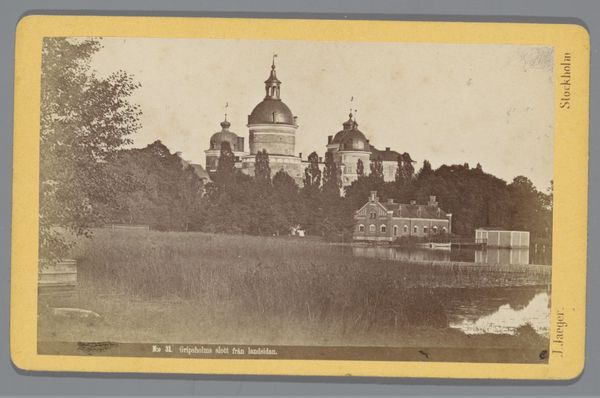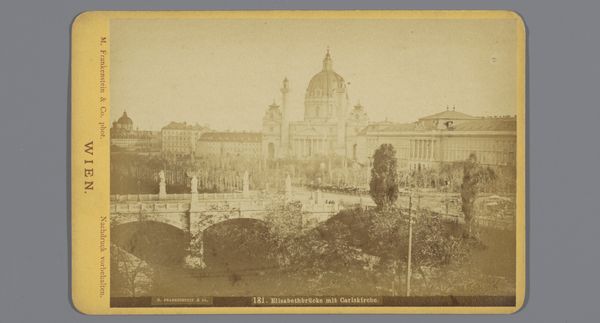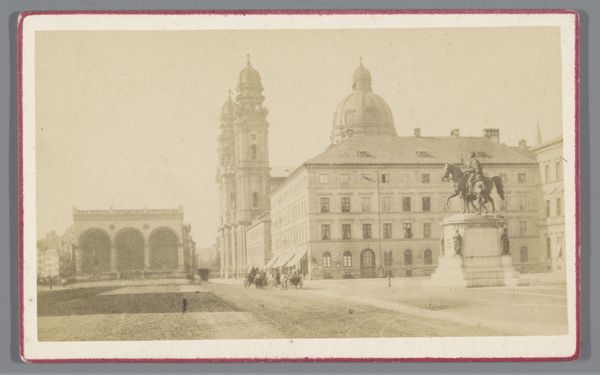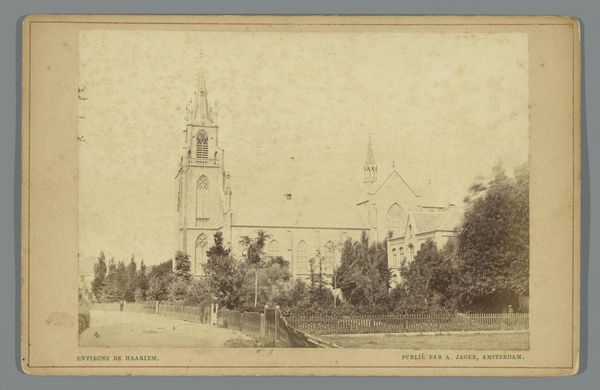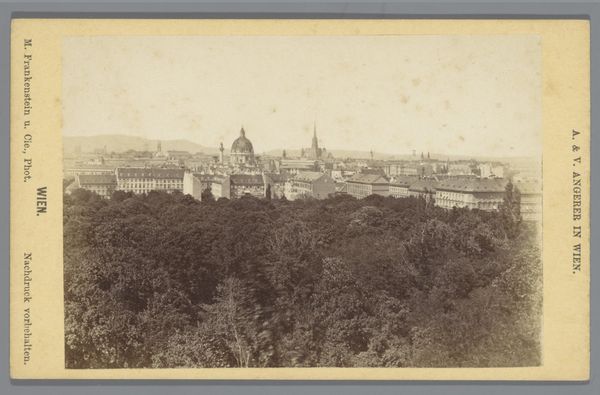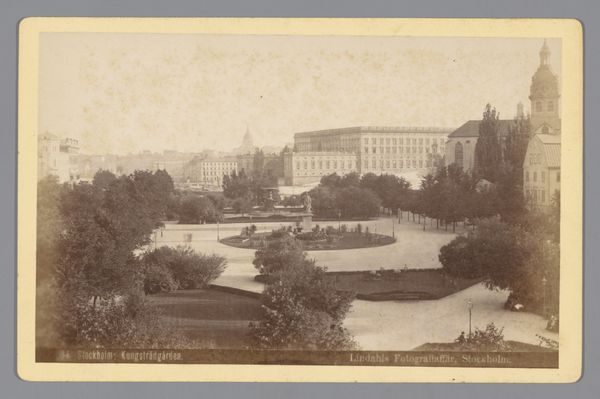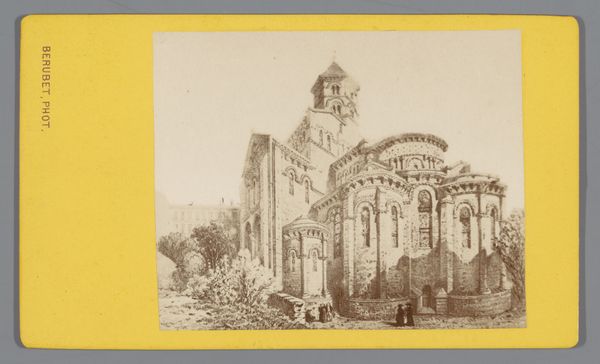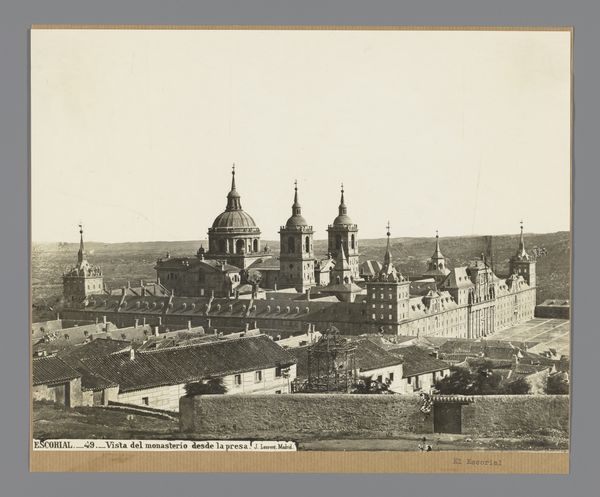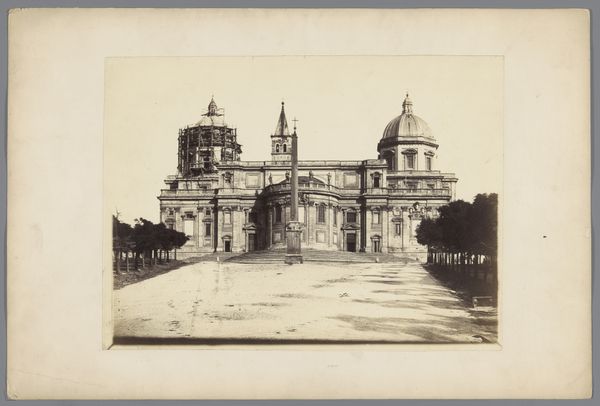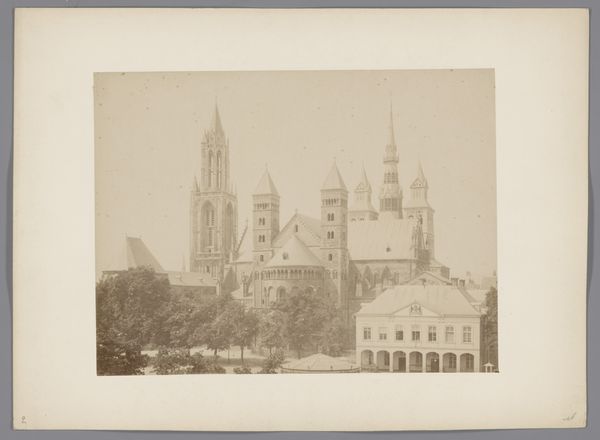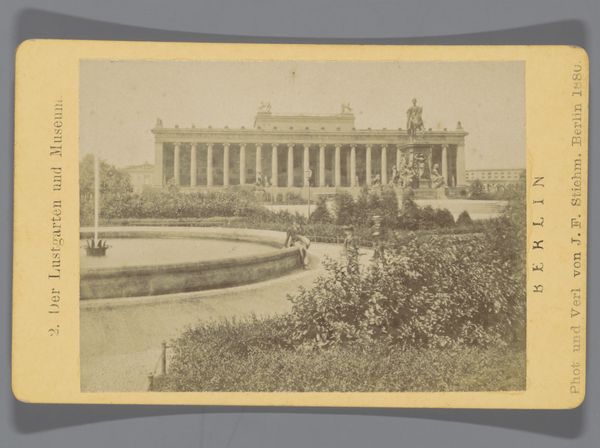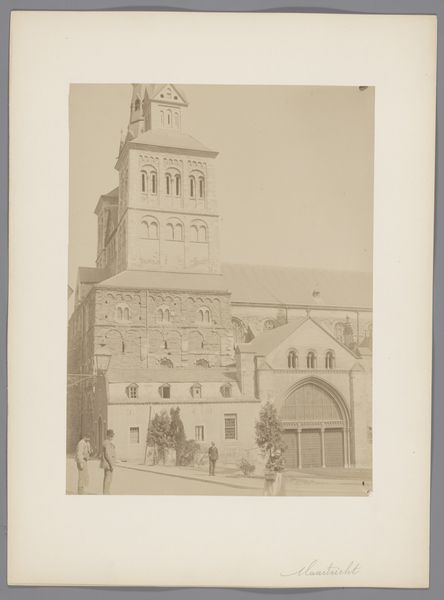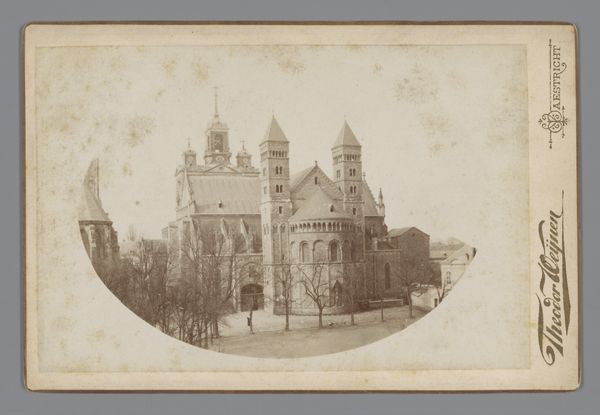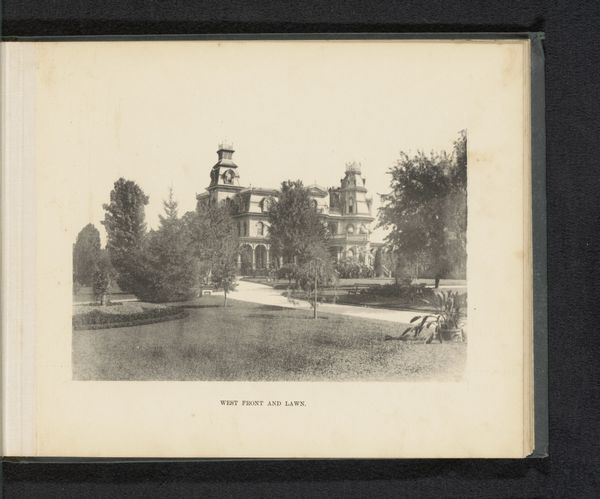
photography, albumen-print
#
portrait
#
landscape
#
photography
#
cityscape
#
albumen-print
#
realism
Dimensions: height 62 mm, width 100 mm
Copyright: Rijks Museum: Open Domain
This albumen print of Karl XII’s Torg and Sankt Jacobs Kyrka in Stockholm was made by Johannes Jaeger sometime in the late 19th century. Jaeger employed a wet collodion process, using glass plates coated with light-sensitive chemicals. This was a popular method at the time, allowing for sharp detail and mass reproduction. While Jaeger clearly had an artistic eye, the process was labor-intensive, requiring careful preparation and handling of materials. Each print would have involved mixing chemicals, coating the glass plates, exposing the image, and developing the print. Though photography was becoming increasingly accessible, it still required a certain level of expertise and equipment, placing it at the intersection of craft, science, and commerce. Looking at this image, it is important to consider the labor involved in creating not just the photograph, but also the scene it depicts – the construction of the church, the paving of the square, and the casting of the statue. Thinking about the materials, making, and historical context in this way allows us to understand the social and cultural significance of the work.
Comments
No comments
Be the first to comment and join the conversation on the ultimate creative platform.
